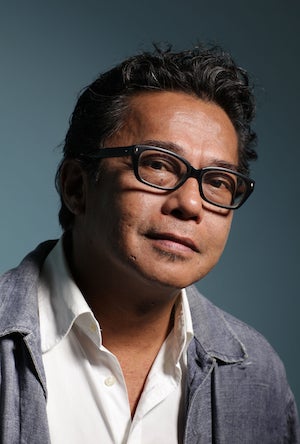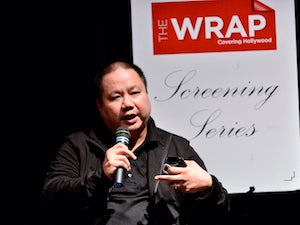Two is the magic number for "Bunohan" director Dain Said.

His second feature is the second film from Malaysia ever to be submitted for Oscar consideration. Said's, pictured left, debut effort was blocked by the country's censors.
"This one was blessed and got through the censors," producer Tim Kwok told the audience after TheWrap's screening of "Bunohan" at the Landmark Theatre in Los Angeles on Monday night.
Also read: Record 71 Countries Submit Films for Foreign-Language Oscars
Kwok, the head of LA-based Convergence Entertainment who hails from Malaysia as well, explained that the government regularly bans films featuring too much sex, violence and anything insulting to religion — or rather, anything reflecting negatively on the "real personality" of the country.
"Dukun," a science-fiction film that was Said's debut effort, fell victim to the country's censors after its completion in 2007. As a result, the filmmaker retreated to his native village for several years before returning to the medium.
Considering "Bunohan" is Malaysia's Academy Award entry in the Best Foreign Language Film category — the first and only other being 2004's "Puteri Gunung Ledang" — Said's career break seems to have been a blessing in disguise. It was during his hiatus that wrote the critically-acclaimed tale that became "Bunohan."
Also read: Oscar's 2012 Foreign-Language Submissions: The Master List (Complete)

Set in the titular border town in northeastern Malaysia, the film follows the intertwining lives of three estranged brothers — an aspiring kickboxer who barely escapes a death match in Thailand, the hitman paid to kill him and a corrupt businessman plotting to obtain their father's land for development.
Despite Said's previous experience with censorship, brutal and bloody violence is central to the premise, but so is spirituality.
"The country actually has different races and religions — Islam being predominant," Kwok noted to Lucas Shaw, a film reporter for TheWrap who moderated the Q&A, before focusing on the presence of shamanism in the film.
Beyond several locals mentioning spirits roaming the land, the brothers' deceased mother has become "a crocodile woman," while their father is still a practitioner of shamanism. That is, until his own son stabs him to death in a desperate effort to gain control of family land so he can turn it into a profitable resort.

"The old way of life is dying off and the new way of life is moving in," Kwok said in reference to the modernization of Malaysia.
And although he stated the director is "not against modernization," Kwok says the underlying purpose of the film is to show the shift in culture and how it's affecting traditions like shamanism.
"Look, this is one aspect of our culture that is dying away," he added. "This is an interesting aspect of the country that a lot of people haven’t even heard of."
When asked why "Bunohan" deserved to be nominated for an Academy Award, Kwok appeared to be at a loss for words. He cited the "good story," but perhaps gave the best answer earlier in the evening while paraphrasing Dain Said's message to viewers: "This is who we are, don't forget it."
